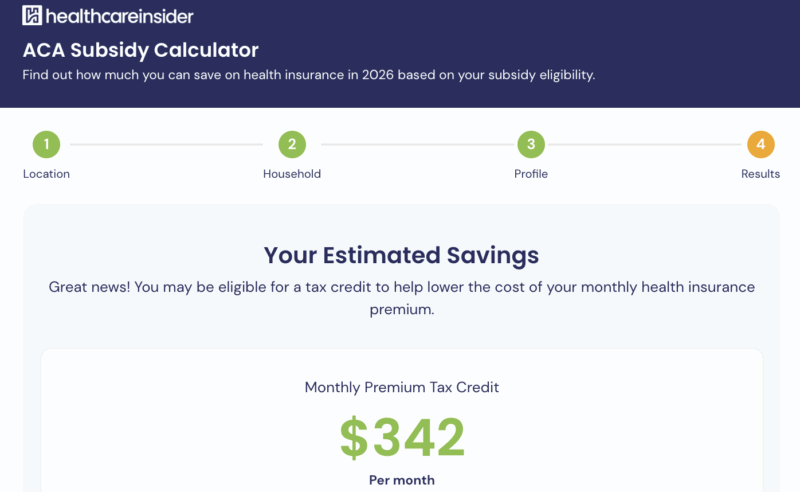Written by James Yoo
Reviewed by Ronnell Nolan
Expert Reviewer
We want to help you make educated healthcare decisions. While this post may have links to lead generation forms, this won’t influence our writing. We adhere to strict editorial standards to provide the most accurate and unbiased information.
Your health insurance may be oriented around a traditional major medical structure (with copayments) or a health savings account (HSA)-compatible high-deductible health plan (HDHP). Some plans are even a combination of the two.
As you navigate the metal tiers of major medical insurance plans and dig into high-deductible health plans, you will want to be aware of how these plans function so you can select the best coverage.
Major Medical Insurance
Major medical insurance is designed with set copayment amounts for specific healthcare benefits. As with all health insurance coverage, you will pay your monthly premium for access to benefits. Then, when you need medical care, you are responsible only to make a copayment or copay. A copay is a set amount outlined in your plan benefits. Some services may require coinsurance instead.
Here is an example of how traditional copay plans work:
- You need to see your primary care physician. Your plan requires you to make a $25 copay at the doctor’s office. The plan picks up the rest of the bill.
- However, if you visit the emergency room, your plan requires you to pay 25 percent coinsurance. That means you will be billed for 25 percent of the covered expenses and your plan will pay up the remaining 75 percent.
- If you seek care out-of-network in either of the examples above, your plan will pay 50 percent coinsurance while you pay the other half of the covered out-of-network expenses. No matter what network design or plan type you choose, be sure to see how out-of-network care is covered.
HMOs and PPOs tend to work off this copay model:
- Health maintenance organizations (HMOs) require insured members to choose a primary care physician who will coordinate their care. You must see this doctor first and get a referral to specialists or other providers. With HMOs, out-of-network care is typically not covered.
- Preferred provider organizations (PPOs) do not require a primary care physician to coordinate care. As such, they tend to offer more flexibility. Services received out-of-network may be covered at a lower percentage or not at all.
While monthly premiums for traditional copay health insurance plans tend to be higher, these plans typically have a low deductible or none at all. This option can be beneficial for those who want a fairly accurate idea of what healthcare will cost them during the course of a year.
While there are traditional copay health insurance plans available at all metal levels, they are more common among gold and platinum offerings, especially the no-deductible options.
High-Deductible Health Plans (HDHPs)
High-deductible health plans require you to pay for all healthcare services out of pocket until the annual deductible has been met, at which point your plan’s benefits kick in and you will then become responsible for only your coinsurance amount. Again, as with all health insurance coverage, you must pay a monthly premium as well.
Here is an example of how HDHPs work:
- You may have an individual health insurance plan with a $3,650 deductible.
- You incur a $600 medical bill after visiting a specialist and undergoing some diagnostic tests. This bill must be paid 100 percent out of pocket. After this, you still have $3,050 more to pay before you reach your deductible, which means you will keep paying for healthcare up until that point.
- Let’s say you are hospitalized later in the year and incur $5,000 worth of medical bills as a result. You will pay the remaining $3,050. In this example, your plan requires you pay 0 percent coinsurance after deductible for covered expenses. The plan picks up the remaining $1,950 and 100 percent of any future medical expenses for the year.
Of course, not all HDHPs will cover expenses 100 percent after deductible. Some will require that you pay, for example, 20 percent coinsurance for covered expenses after the deductible. The coinsurance amount might even vary by the category of care (e.g., primary care physician office visit, specialist, emergency room). It is helpful to know that under the Affordable Care Act annual out-of-pocket expenses for covered healthcare services are capped at a certain amount.
Those who purchase an HSA-compatible HDHP may enroll in a health savings account (HSA) in which to set aside pre-tax dollars for qualified medical expenses. These funds roll over year after year and may even accrue interest.
For 2020 coverage, the IRS defines an HSA-compatible high-deductible health insurance plan as follows:
Individual
- Minimum Annual Deductible: $1400Maximum Annual Out-of-Pocket: $6,900
Family
- Minimum Annual Deductible: $2,800
- Maximum Annual Out-of-Pocket: $13,800
Because high-deductible health insurance plans tend to have lower monthly premiums and higher out-of-pocket expenses, they tend to be best for relatively healthy individuals who anticipate lower healthcare expenses.
With a high-deductible health insurance plan you may still have a doctor visit copay. It all depends on the coverage you select. High-deductible health insurance plans may be found at all metal levels, but they tend to be most common among the bronze and silver tiers.
Major Medical Insurance or High-Deductible Health Plan?
It comes down to healthcare needs and out-of-pocket exposure. To really compare the plans you are considering, you will need to analyze and calculate costs beyond the monthly premium.
- Add up your monthly premium for the year.
- Factor in your deductible.
- Consider your typical healthcare expenses in a given year and compare them as covered by a copay plan versus a high-deductible plan. Do not generalize; be sure to look at the details of the plan-specific benefits when making the comparison. If you have medical bills for the previous year, consult them for a more concrete estimation.
- Compare your monthly premium, deductible and out-of-pocket costs combined for each plan scenario.
- Then, determine which plan type seems most cost-effective and manageable for you and your family.
Taking a few minutes to do this can prevent you from paying too much for the wrong coverage or winding up with excessive out-of-pocket costs for which you are not prepared.
Thank you for your feedback!


 by
Ronnell Nolan |
Updated on
August 18, 2025
by
Ronnell Nolan |
Updated on
August 18, 2025 




